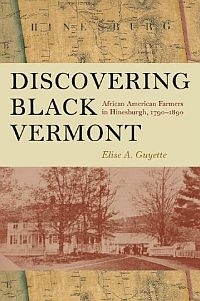 In 1795, Shubael and Lucy Clark started making a life for themselves at the top of a hill in Hinesburg, Vermont. The hill was blanketed in old-growth forest and the Clarks had to clear the land by hand just to make a path wide enough to carry supplies to build a new log cabin. While caring for two young children they set up their home and began farming their 100 acres.
In 1795, Shubael and Lucy Clark started making a life for themselves at the top of a hill in Hinesburg, Vermont. The hill was blanketed in old-growth forest and the Clarks had to clear the land by hand just to make a path wide enough to carry supplies to build a new log cabin. While caring for two young children they set up their home and began farming their 100 acres.
Three years later the Peters family bought land at the bottom of the hill and began their own farm.
Like many pioneering families, the Clarks and the Peterses had to be tenacious, resourceful, and steadfast in their resolve to live in the rural wilderness. It was said that if you couldn’t carry 100 pounds on your back for ten miles, you weren’t fit for settling the Vermont frontier. But these families faced additional challenges: they were black in a time when slavery was thriving in the newly formed United States and racism was rampant.
More than 200 years later, Vermont historian Elise Guyette has uncovered the story of these pioneering families and captured their lives in a new book: "Discovering Black Vermont: African American Farmers in Hinesburgh, 1790-1890.
Guyette spoke with VPR’s Jane Lindholm about her book and the black families that settled in Vermont after the revolution.